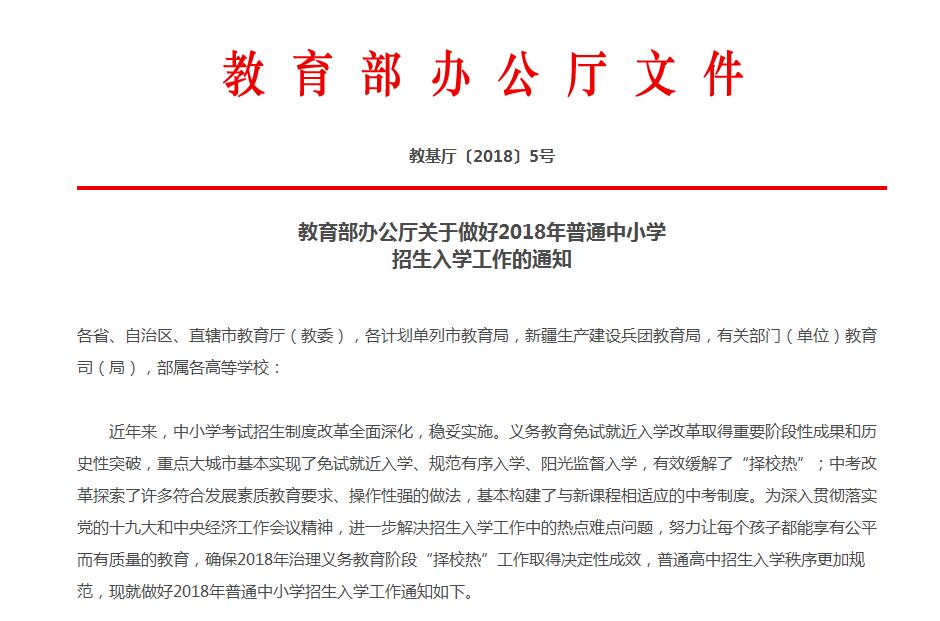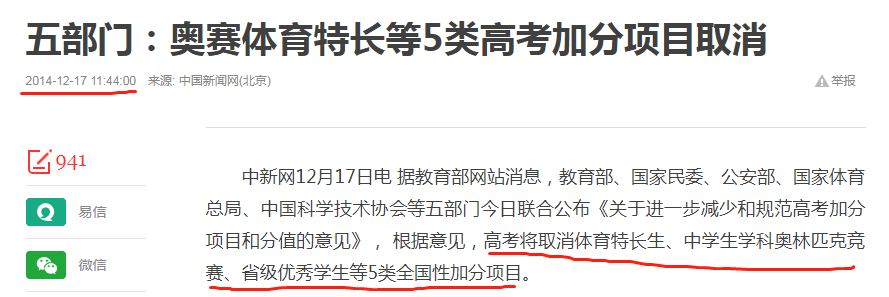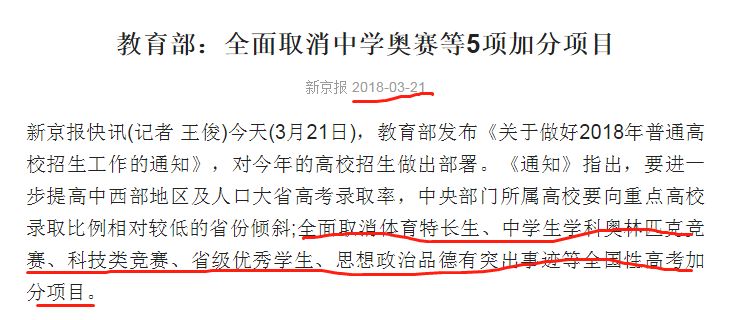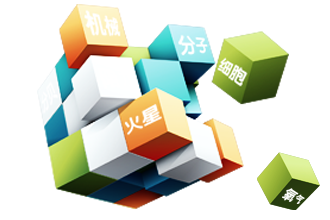News updates
Reprint - Why are the bonus points for the college entrance examination cancelled in technology competitions, and the value of technology competitions has actually increased?
Reprint self created customer resource library
On February 23, 2018, the General Office of the Ministry of Education issued a notice on doing a good job in the enrollment and enrollment of ordinary primary and secondary schools in 2018.
It is clearly stipulated that the enrollment scale of specialty students should be gradually reduced until the cancellation of all types of specialty student enrollment by 2020.

Prioritize
Cancelling bonus points for Olympic and technology competitions is not new, as it has been mentioned every year in recent years' education enrollment documents.
The bonus points for science and technology competitions have been cancelled, and independent enrollment in universities has risen. God has opened a larger window while closing a door
From the utilitarian perspective of pursuing higher education, the value of projects such as technology competitions has increased.
◇◇◇ Cancel the universal bonus points and transfer them to individual universities to lower their scores, which is equivalent to the delegation of administrative power by the education regulatory department, giving universities more autonomy.
Cancel the competition and add points, it's just 'fried cold rice'
Recently, the Ministry of Education issued a notice on doing a good job in the enrollment work of ordinary universities in 2018, which states:
Clearly abolish national college entrance examination bonus programs such as sports majors, high school student subject Olympic competitions, science and technology competitions, provincial-level outstanding students, and outstanding achievements in ideological and political character.
Actually, as early as 2014, this document was released:

再来看看今天的文件:

Is it the same as in 2014?
Are the words and expressions almost the same?
Although it's a rehash of the past,
But it is still necessary to introduce the policy background.
In September 2014, the State Council issued the "Implementation Opinions on Deepening the Reform of the Examination and Enrollment System", laying the core tone of the new college entrance examination reform: classified examination, comprehensive evaluation, and diversified admission.
In December 2014, the Ministry of Education and five other ministries issued the "Opinions on Further Reducing and Standardizing the Scoring Items and Scores of the College Entrance Examination", which serves as a supplementary document to the "Opinions" of the State Council and clearly stipulates that starting from 2015, national college entrance examination bonus items such as sports majors, middle school student subject Olympic competitions, science and technology competitions, provincial-level excellent students, and outstanding achievements in ideological and political morality will be cancelled, and only heroic children will be retained There are several bonus points for ethnic minority candidates in remote areas.
Afterwards, in March and April each year, the Ministry of Education will issue a document titled 'On Doing a Good Job' ×× Documents such as the "Notice on the Enrollment Work of Ordinary Colleges and Universities in 2018" also contain statements regarding the cancellation of sports majors and Olympic bonus points. 2018 is no exception, but the attention level was relatively low in the past.
The value of technological talents is getting higher and higher
As the title suggests, after canceling the bonus points for special talents and depriving them of their utilitarian attributes, shouldn't technology competitions and others be devalued? Why is the gold content getting higher and higher?
What is the reason?
Because prestigious universities such as Tsinghua and Peking University have invested more and more places in independent enrollment during the admission process. Taking Tsinghua University and Peking University as an example, only 20% of students are admitted based on bare scores; In their current independent enrollment evaluation system, competition awards have become almost the only and irreplaceable indicator.
Universities are also increasingly emphasizing the selection of students with disciplinary expertise and innovative potential.
Randomly take a look at the application conditions for independent enrollment in several universities in 2018:
Those who have made inventions or participated in national finals or international competitions in science and technology and have achieved outstanding results; Those who have relevant disciplinary strengths and innovative potential within the scope of our school's independent enrollment program, and have achieved excellent results in learning and practical activities in related majors both domestically and internationally—— Peking University
In terms of research and creation: Students who have outstanding performance in scientific and technological inventions, research practice, literary creation, etc. Outstanding talents: Students who have outstanding talents in humanities and society, innovation and design, or have achieved outstanding results in related learning practices. Students who excel in subjects such as mathematics, physics, chemistry, biology, and information science, and have performed outstandingly in the subject Olympic competition—— Tsinghua University
I have a strong interest in related disciplines, have accumulated solid knowledge or academic training, have in-depth or innovative insights, and have performed excellently in related discipline competitions, essay solicitations, or innovative activities—— Renmin University of China
Received the Youth Science and Technology Innovation Competition and the National First and Second Prizes of "Tomorrow's Little Scientist" during high school (the list of winners must be announced on the Sunshine Platform of the Ministry of Education) - Shanghai Jiao Tong University
Those who have won second prize or above in the National Youth Science and Technology Innovation Competition, the "Tomorrow Little Scientist" award activity, or the National Primary and Secondary School Computer Production Activity during their high school years—— Beijing Institute of Technology
Materials that represent students' disciplinary strengths and innovative potential, including but not limited to various certificates, works, or academic achievements (including covers, catalogs, and all achievement pages) obtained in various disciplinary competitions during high school, as well as recommended materials (real name recommendations from high school, relevant social organizations, or experts in related fields)—— WuHan University
I have a strong interest in the major I am applying for, and possess the strengths or innovative potential of other disciplines related to the major I am applying for, and can provide authentic and detailed proof materials—— Hunan University
The National Youth Science and Technology Innovation Competition (including the National Youth Biology and Environmental Science Practice Activity) and the "Tomorrow Little Scientist" award activity have won the third prize or above in the country. Outstanding performance in other disciplines, innovation potential, and other aspects, with iconic achievements, and the ability to provide relevant proof materials. This type of expertise needs to be evaluated and recognized by our school's expert group, and will be given a preliminary qualification based on the type of application—— Chongqing University
It can be seen that these universities cover the first and second categories, but all represent the highest level of education in China. Although the country has explicitly abolished the exam for special talents, it has not reduced the training efforts for talents with corresponding special talents.
The increase in the value of technology competitions is not fabricated out of thin air, but demonstrated by practical actions taken by universities.
Decentralization of administrative management power and transfer of autonomy to universities
From the perspective of university enrollment, on the one hand, the Ministry of Education has explicitly proposed the cancellation of competition bonus points; On the other hand, when universities recruit students independently, they explicitly encourage competition students, and even start a competition for competition students. Does it seem contradictory?
In fact, it's not contradictory!
The bonus points at the college entrance examination level are a policy manifestation, which means that as long as you obtain the recognition of the Ministry of Education, it has universal applicability, and all universities must and must recognize it; The reduction in scores for independent enrollment is only applicable to a specific university, which means that the reduction is only limited to the specific majors of the university and will not be recognized by other universities.
Returning to the three core points in the 2014 "Implementation Opinions of the State Council on Deepening the Reform of the Examination and Enrollment System", namely "classified examination, comprehensive evaluation, and diversified admission", the specific elements of the new college entrance examination reform are the "two basis and one reference" (based on the unified college entrance examination scores, high school academic level exam scores, and reference to the comprehensive quality evaluation information of high school students), and the pilot program of independent selection in universities.
Canceling universal bonus points and transferring them to individual universities for lower scores is equivalent to delegating administrative power to education authorities, giving universities more autonomy. This is also a manifestation of the core points of the State Council's new college entrance examination reform, namely "classified examination, comprehensive evaluation, and diversified admission". The increase in autonomy of universities will inevitably be accompanied by a decrease in the administrative power of the competent department.
From the perspective of scores, as well-known educator Chu Zhaohui said: compared with the old college entrance examination before 2014, the overall value of scores for entering a higher school is lower, which means that the role of test scores in entering a higher school is reduced. It was originally entirely based on scores. But the new college entrance examination is not only based on scores, but also on other evaluation factors. For prestigious schools, the added "other evaluation factors" have been almost completely replaced by competitions, at least in the short term.
As for why competition has become the most mainstream third-party evaluation indicator, it is another helpless and heavy topic. Here, without further elaboration, please refer to the article by Mr. Kang Xiaoming, a researcher at the Chinese Academy of Sciences, published in the China Youth Daily:
The future has arrived, and the generation of robot talents has become a hot demand of the times
In the context of the artificial intelligence era and the trend of the new college entrance examination, robot education has been increasingly valued by the government and various sectors of society.
Throughout the various policies introduced by the Ministry of Education and other relevant departments in 2017:
At the beginning of 2017, the Ministry of Education officially released the "Key Points for Education Informatization Work in 2017" and the "Primary School Science Curriculum Standards for Compulsory Education", as well as relevant issuance notices. While emphasizing the importance of education informatization again, it made clear regulations for the science curriculum standards in the primary school stage of compulsory education, and for the first time, advanced the implementation of science education to the first grade of primary school.
The 13th Five Year Plan for Education Informatization by the Ministry of Education points out that regions with conditions should actively explore the application of information technology in new education models such as STEAM (Science, Technology, Engineering, Art, Mathematics) education and maker education
The new college entrance examination plan for Zhejiang Province in 2017 recently introduced the inclusion of information technology in the college entrance examination subjects. That is to say, programming has become an important content.
The "New Generation Artificial Intelligence Development Plan" issued by the State Council proposes to set up artificial intelligence related courses in primary and secondary schools, and gradually promote programming education.
In this educational environment, various robot education programs offered to teenagers in China are no longer just a course that represents children's interests, but also determine their mainstream competitiveness in future society.
Although the Ministry of Education has announced the cancellation of the competition bonus program, the ultimate goal of education is definitely to keep up with the pace of the times, better adapt to the development needs of the times, and cultivate more development oriented talents that society needs.
Note: This article originates from the WeChat account (zzzsnc) of "Independent Enrollment Internal Reference", and some content has been modified
To learn about the "Notice on Doing a Good Job in Enrollment and Enrollment of Ordinary Primary and Secondary Schools in 2018", please click to read the original text.









